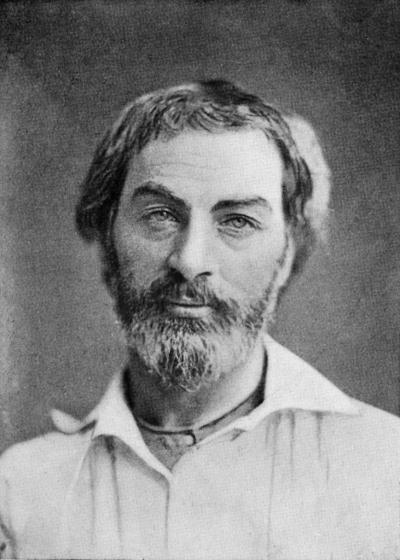Faculty of Philology
Lomonosov Moscow State University
Faculty of Arts
State Institute for Art Studies
Gerasimov Institute of Cinematography (VGIK)
CONFERENCE
On the Occasion of the 100th Anniversary of the Birth of Tonino Guerra
TONINO GUERRA: DIALOGUES OF ARTS AND DIALOGUES OF CULTURES
Conference Programme
16 March
Faculty of Philology, Lomonosov Moscow State University
GSP-1, Leninskie Gory
The Pushkin Room (972)
11:00
Naum Kleiman (film historian, founder of the Moscow Cinema Museum)
Opening Remarks
11:30 – 14:00
Session 1 – Hybrid Images: Verbal, Visual and Performative
Salnikova Ekaterina (SIA). Textures of the Desert: Universal Metaphors in the works of Tonino Guerra
Tatiana Levchenko (HSE). Tonino Guerra’s Il Miele directed by Yuri Lyubimov: Observations of a Reader and a Viewer
Natalia Balandina (SIA). Word and Image in Theo Angelopoulos’ Film Collaborations with Tonino Guerra
Olga Frolova (MSU). Women in Blow Up
Nina Moroz (MSU). The Grey-Bearded Lion, or I Remember
14:00 – 14:30 Coffee Break
14:30 – 16:00
Session 2 – Interculturality as Creative Strategy
Tatiana Danilyants (film director, poet). An Armenian Trace in the Life and Work of Tonino Guerra
Cheti Traini (University of Urbino). Sceneries of Memory and Heart: Tonino Guerra’s La pioggia tiepida. A Journey from Russia to Italy
Tatiana Bystrova (MCU). Moscow and St. Petersburg in the Creative Mind of Tonino Guerra
16:00 – 16:15 Coffee Break
16:15 – 18:15
Session 3 – Tonino Guerra’s Screenplays: the Sacred, the Magic and the Political
Alexandra Bibikova (MSU). Love Sacred and Love Profane in Tonino Guerra’s Last Screenplay The Forbidden Dance
Ekaterina Kalinina (MSU). Amarcord as a Lyric Cycle
Polina Pronina (RSUH, Ca’ Foscari University of Venice). Making the Irreal Real: Phantasmagoria in the Screenplays of Tonino Guerra
Denis Viren (SIA). Politics, Ethics and Poetics in the 1970s Films of Francesco Rosi
18:30 Reception
17 March
State Institute for Art Studies
5, Kozitsky pereulok
The Mirror Room
11:00 – 13:00
Guerra, Tarkovsky, Sokurov: Real and Imaginary Dialogues
Lev Naumov (independent researcher). Tarkovsky and Guerra – from A Voyage to Italy to Nostalgia, or A Motherland Shared by a Russian Filmmaker and an Italian Scriptwriter
Giulia Carnevali (Associazione Tonino Guerra). Un poeta nel cinema: l’incontro non occasionale fra Tonino Guerra e Andrej Tarkovskij
Diane Nemec Ignashev (Carleton College, MSU). Tonino Guerra – the Unsung Hero of Aleksandr Sokurov’s Moscow Elegy
Cristina Matteucci (University of Urbino). The Fool in the Work of Tonino Guerra: from Rural Madman to Jurodivyj
13:00 – 14:00 Break
14:00 – Tempo di viaggio (1983 / 62 min.) by Andrei Tarkovsky. Presented by Natalia Balandina
15:15 – 15:30 Break
15:30 – Seven Episodes from the Life of a Director (2017 / 95 min.) by Tatiana Levchenko (The Research Centre for the Studies of Creative Work of Yuri Lyubimov and the Theatre of 20-21st century, Higher School of Economics).
A film about Yuri Lyubimov’s work directing Il Miele, based on a poem by Tonino Guerra. Presented by the filmmaker
17:15 – 17:30 Break
17:30
Conference Special Guest:
Yuri Arabov (VGIK)
18 March
State Institute for Art Studies
5, Kozitsky pereulok
The Screening Room
13:30 – L’Eclisse (1962 / 126 min.) by Michelangelo Antonioni. Presented by Daniil Smolev
16:00 – E la nave va (1983 / 133 min.) by Federico Fellini. Presented by Natalia Balandina
Conference Curators:
Polina Rybina (MSU), Ekaterina Kalinina (MSU), Denis Viren (SIA)
Members of the conference organizing committee:
Tatiana Venediktova (MSU), Olga Frolova (MSU), Svetlana Slavkova (University of Bologna), Diane Nemec Ignashev (Carleton College, MSU), Alexander Lobodanov (MSU), Tatiana Gnedkovskaia (SIA), Sergei Kapterev (VGIK)

